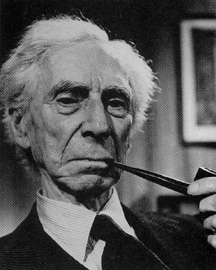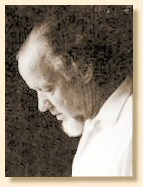Let’s say that I had an argument for the truth of Christianity to which there was no obvious objection. The argument looks logically valid and all of its premises seem unassailable. Now let’s say I present this argument to a fairly sophisticated non-believer (N). Would this argument’s coming to N’s attention necessarily warrant N’s immediate acquiescence to the demands of the gospel?
I doubt it. If you study philosophy for any length of time, you’ll be sure to find that arguments and theories that look bullet-proof aren’t all they’re cracked up to be. Sometimes you’ll meet up with an argument with a conclusion that just seems utterly and obviously wrong, but you can’t for the life of you see anything wrong with the premises or the logic of the argument. So, for instance, Zeno of Elea (ca. 490 BCE) argued from a number of
paradoxes (about 40 in all) that motion was impossible. One of his paradoxes, the Runner, goes like this: say a runner (R) attempts to run from point A to point B, a distance of 1 mile. But before he gets from A to B, R must get to the half-way mark, C. But before R can get to C, he must get to the half-way mark between A and C, D. But before reaching D, he’ll have to get to the half-way mark between A and D, E and so on. In order to get anywhere at all, R will have to traverse an infinite number of distances, for any distance is infinitely divisible. But traversing an infinite number of distances is impossible. Therefore, R can’t move anywhere, much less from A to B. Of course, one could reject the premise that any distance is infinitely divisible, thus defanging this paradox. But it seems intuitively correct that any distance can be infinitely divided, and even if one were to go against intuition and reject the premise, that just leads one into another, equally nettlesome paradox: the Stadium. Taken together, Zeno’s paradoxes provide an infuriating
reductio ad absurdum for the concept of motion. I say infuriating because it is patently obvious that we
can and
do move.
Now, some dandy (and not so dandy) responses to Zeno have been offered over the millennia. But overturning Zeno is not so easy as one might think. In fact, Zeno’s paradoxes had to await certain 19th century developments in calculus in order to be resolved.
[1] There’s no need to bore anyone with the details of that here. My point is that really viable refutations to Zeno’s argument against motion were simply unknown for more than two thousand years.
But, of course, someone presented with Zeno’s paradoxes in, say, 264 CE would have been quite irrational to abandon her belief in motion upon hearing Zeno’s arguments. Even if she has no good objection to Zeno’s argument, it would seem that she has not done anything irrational in rejecting the argument simply on the grounds that the conclusion seems unpersuasive (to say the least) to her.
Consider also a situation in which there is insufficient evidence to decide between two mutually exclusive, but equally plausible theories. This phenomena is called “undetermination of theory by evidence.” For example, currently the Copenhagen and Bohm schools of quantum mechanics are on equally good footing as far as their simplicity and ability to account for the evidence goes. But the two schools are mutually exclusive, thus forcing a decision between the two (for anyone who cares about quantum mechanics). Again, we are faced with two theories to which there are no obvious objections, but, nevertheless, we must reject at least one of them.
[2]Thus, lightly armed with a few examples, let us return to our initial question: faced with our seemingly watertight argument for Christianity, must N acquiesce to the force of the argument and accept the truth of the faith? Not really. For all N knows, our argument may, like Zeno’s paradoxes, contain faulty assumptions or premises which we do not currently have the necessary conceptual tools to dismantle. Or perhaps, the tools have been developed, but N is unaware of them, or is aware of them but just hasn’t yet seen how to apply them to the argument at hand. Or perhaps, from N’s vantage point, there are other theories on offer which seem to account for the data equally well, theories incompatible with Christianity.
What I’m trying to do is just raise awareness that slam-jam arguments are insufficient for doing successful Christian evangelism/apologetics. There’s just more to it than that. I say this because I so often read or hear both lay and professional Christian apologists talking as though anyone who doesn’t accept Christianity after hearing their arguments is just being intellectually dishonest or some such thing. I would say that someone who does not believe in God is intellectually dishonest, but not because they are not fully persuaded by some argument or other.
Such folks are dishonest because by virtue of being created in God’s image they have a sense of the divine within them and they suppress the truth in unrighteousness. But they are not necessarily dishonest because they look askance at the cosmological, transcendental or ontological arguments or what have you.
The moral of the story is: even if we had an unassailable argument for Christianity (I’m not sure that we do, either), that’s not necessarily sufficient to require immediate assent from a given non-believer. There’s more to it than that. I hate to be the bearer of bad news, but argumentation will necessarily and always in and of itself be insufficient for changing the minds and hearts of those outside of Christ. We cannot simply marshal our arguments and think our work is done, for arguments alone, however good they are, are insufficient. Clever syllogisms can only supplement and never replace prayer, consistent, unflinching displays of sincere Christian love and the work of the Holy Spirit when sharing Christ with others.
[1] See Wesley C. Salmon, “A Contemporary Look at Zeno’s Paradoxes,” from Space, Time and Motion (Minneapolis: University of Minnesota Press, 1980)
[2] See Alister McGrath’s discussion in A Scientific Theology: Theory, volume III (Cambridge: Wm. B. Eerdman's, 2003) pp. 229-31


